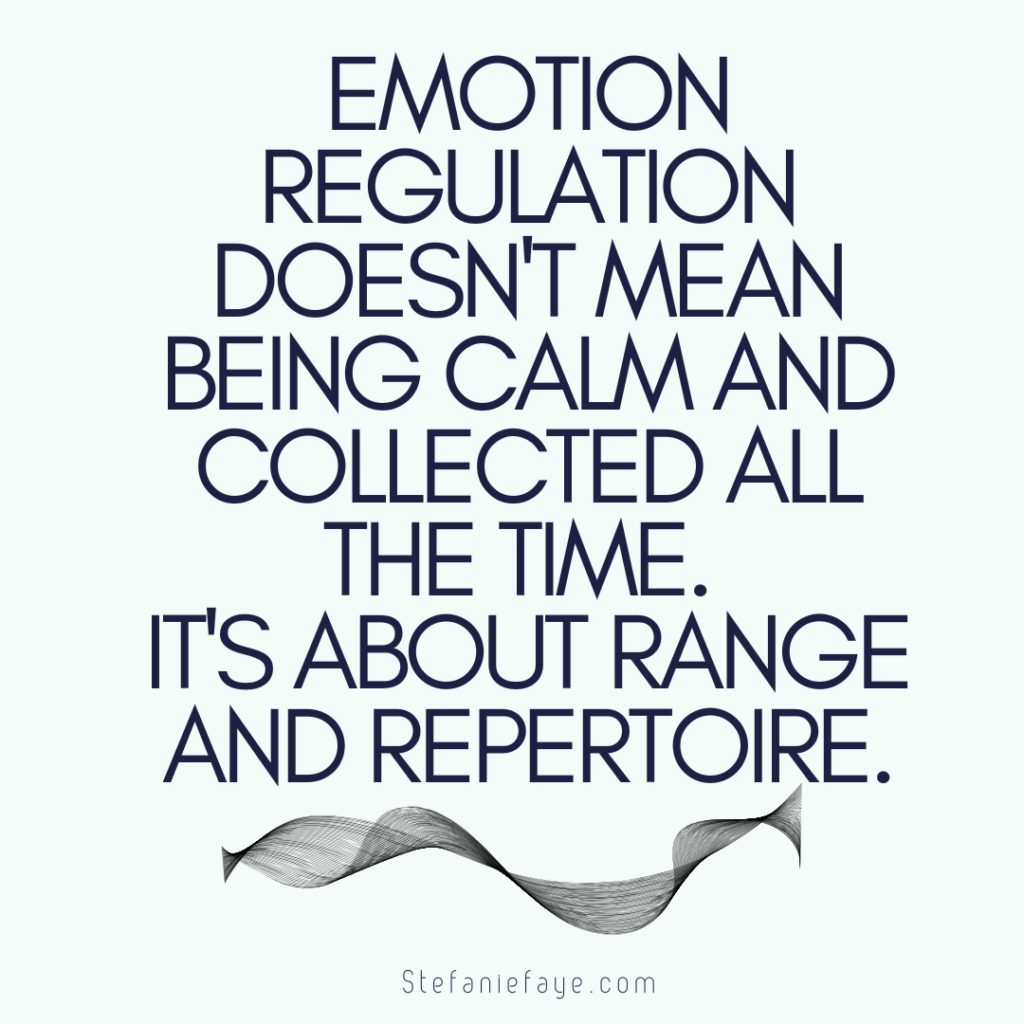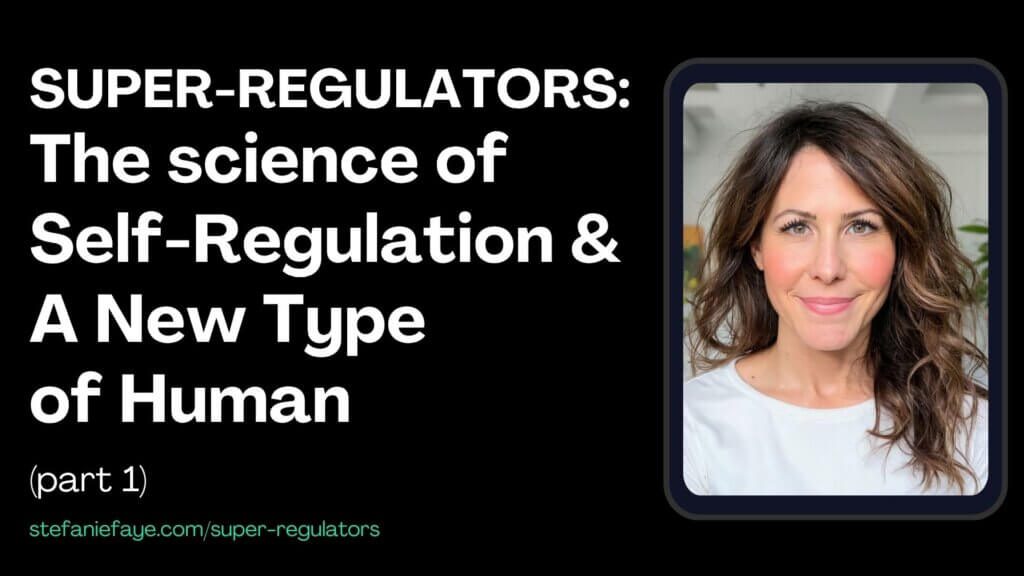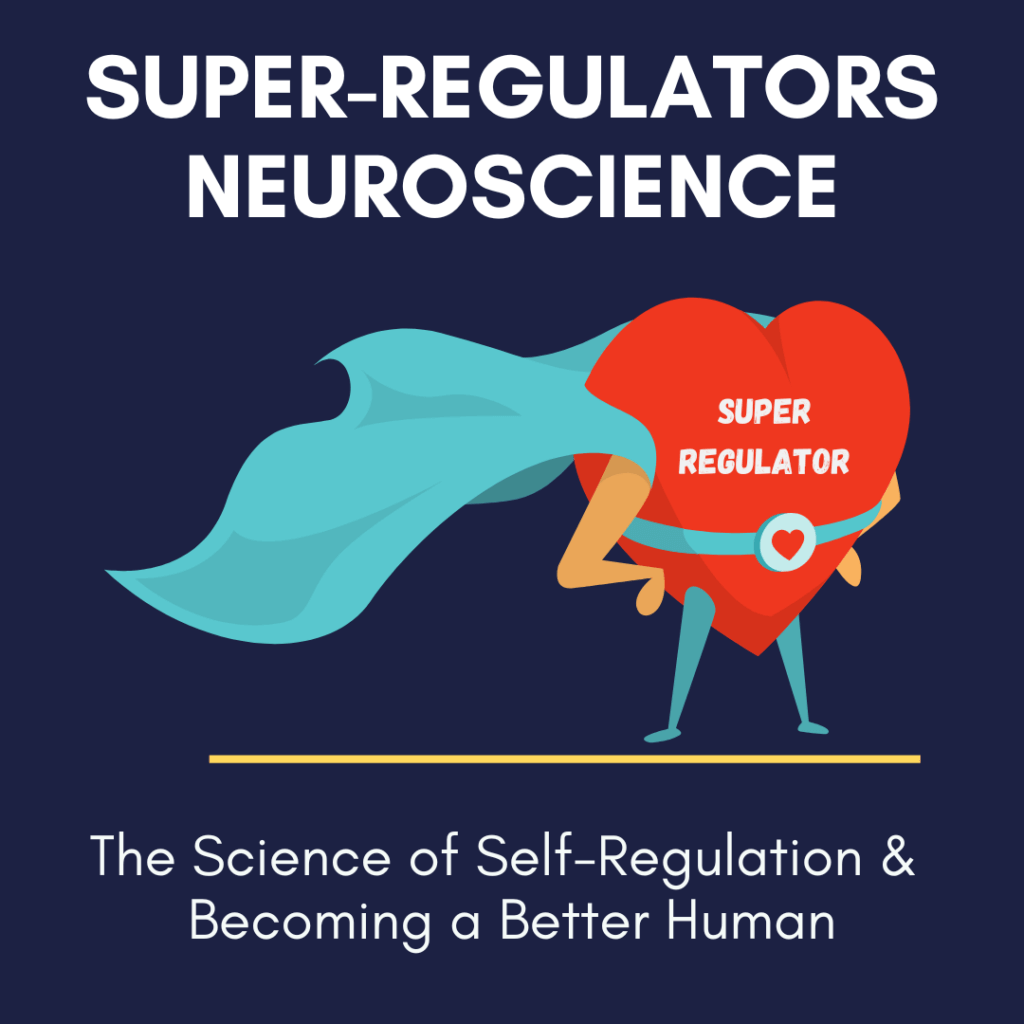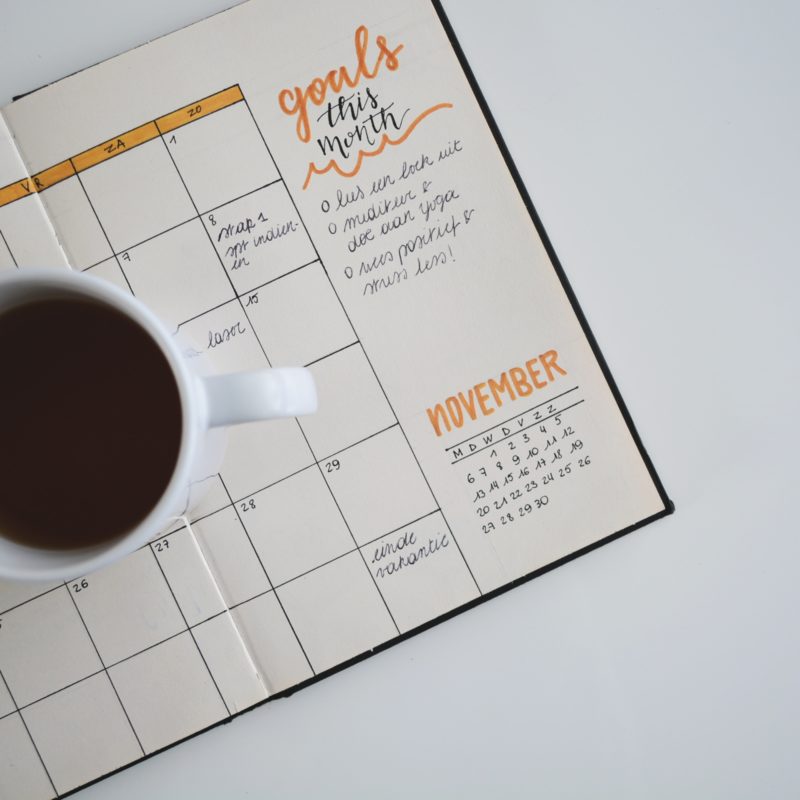Emotion regulation doesn't mean being calm and collected all the time.
It's about range and repertoire, and an ability to intentionally shift into a state we prefer. A state that 'feels better'. Feeling better is always relative - if we feel isolated alone, we may want to feel more connected with others, with ourself, or with life in general. If we feel over-stimulated, we may want to shift into a calmer state.
Emotion regulation is one of the most important skills we can learn in this lifetime.
As humans, we are not born with brains that give us the tools to fully regulate ourselves. These develop over time, mainly in the context of our early relationships and interactions.
Depending on our histories and experiences, we might find it hard to control our negative thoughts and feelings. We might find ourselves stuck in loops of feeling stuck, angry, hopeless, distracted or afraid.
It also means that since our earliest experiences and conditions are not always in our control, it can be difficult for many people to learn how to regulate in adaptive ways.
So whether we are dealing with young people, or adults -
there's a chance some of them did not have what they needed growing up in order to develop emotion regulation skills to their highest potential.

This is why we need self-regulation models.
Models are not more 'special' than anyone else. It's just they've managed to learn how to regulate themselves well enough that they are able to help others do it too.
No matter what our past contains and how we might feel now, our brain does give us the chance to LEARN and develop our ability - - incrementally and often microscopically - to feel better more often. This is what self-regulation is all about.
Self-regulation can help us align with more experiences and situations that feel really good to us - as well as give us more strength and power to move through things that are difficult.
Whether you are a coach, leader, teacher, or simply navigating your own growth journey, self-regulation is the foundation of resilience, effective communication, and meaningful change.
It is what allows us to:
- Pause before reacting to criticism or rejection
- Shift from anxiety to curiosity in moments of uncertainty
- Stay present with discomfort long enough to learn from it
- Model calm and clarity for others—even when chaos swirls around us
Research shows that individuals who develop self-regulation skills experience greater well-being, improved relationships, and higher performance across domains (Davidson & Lutz, 2008).
Over the next 4 weeks, I’ll be sending you a short video on the topic of self-regulation.
In particular, we are going to look at how we - as leaders, coaches, professionals, parents and partners - can explore the Human SuperPower of Learning and Self-Regulating as a way for us to expand our wisdom and help others tune into their own power of learning and self-regulating.
This is what I call Super-Regulation - if you’re reading this, you might have already read my mini-book on Super-Regulators. The upcoming articles and videos go further into the concepts covered in that book.
A Super-Regulator is someone who has learned the skills of:
- Self-Regulation: they use their mind and body to access a sense of inner well-being
- Co-Regulation: they use relationships to access a sense of well-being, growth and evolution
- Super-Regulation: they serve as a unique member of the species who helps other humans learn to self-regulate, co-regulate and access a higher awareness of their own possibility for well-being, growth and evolution
I’ll also be holding a free workshop in September - also on the topic of Super-Regulators. It is geared towards coaches, leaders and any professional who is helping others access higher levels of their human potential.




